
How did they make the Tyrannosaurus Rex sound effects in Jurassic Park? What’s the history of the famous ppppfffppffpfp of a whoopee cushion?
Dallas Taylor, founder and host of 20,000 Hertz, tells the stories behind the world’s most recognizable and interesting sounds. If you haven’t heard it, it’s an incredible masterclass in podcast sound design.
I had the chance to chat with Dallas about why sound matters in podcasting, how long it takes to produce an episode of 20,000 Hertz (Hint: a long, long time), and much more.
Portions of this interview have been edited for clarity and content.

Doug
What was your original intent for 20,000 Hertz?
Dallas
I thought a lot about it for a really long time. I bought 20000hertz.com and 20k.org years ago, so something was simmering. I wanted to do something in the space of either funny videos about sound, or maybe a podcast, maybe a YouTube series.
How it really manifested itself is I own a sound design company called Defacto Sound. We do sound design for advertisements, trailers for Netflix and HBO, all that stuff. So I've been doing that for 11 years. But as a sound designer, it always feels like I'm banging my head up against the wall, trying to get people to care about sound.

Even in my industry, it seems like there's this disconnect. It's all visuals and then sound is the finishing job, an afterthought. And so maybe I had a chip on my shoulder about it, but I really just wanted to start making sound more accessible.
As a sound designer, it always feels like I'm banging my head up against the wall, trying to get people to care about sound.
The inspiration was really early 99% Invisible sound stories. Early Radiolab did a lot of sound-related episodes as well. And I felt like there was space in there. It took us a year to make our first two episodes.
We have these five senses and we curate four of our senses. As humans, we think a lot about these other senses, but our sense of hearing is wrongfully relegated to kind of like an angry person in a room. You can't poke the bear of audiophilism. And so I wanted to kind of crush audiophilism. And I wanted to make sound more accessible to normal people.
Doug
Has that intent shifted through the years?
Dallas
The mission has become stronger and stronger over time. Because I think when I’m starting anything, there's a good loose idea of what I'm hoping people will take away from it. But even early on, I don't think anyone really had a vision for it other than me. So it was lonely for a year or two while trying to develop it, trying to get other people on board.
From my perspective, it was like no one believed that this was going to be a thing. Like I thought, oh, these stories about sound, sound people will care about this. Family and friends were just like, okay, that's cute. That's your thing. But early on, we were paying writers and my staff to work on it. So I was paying for everything to happen.
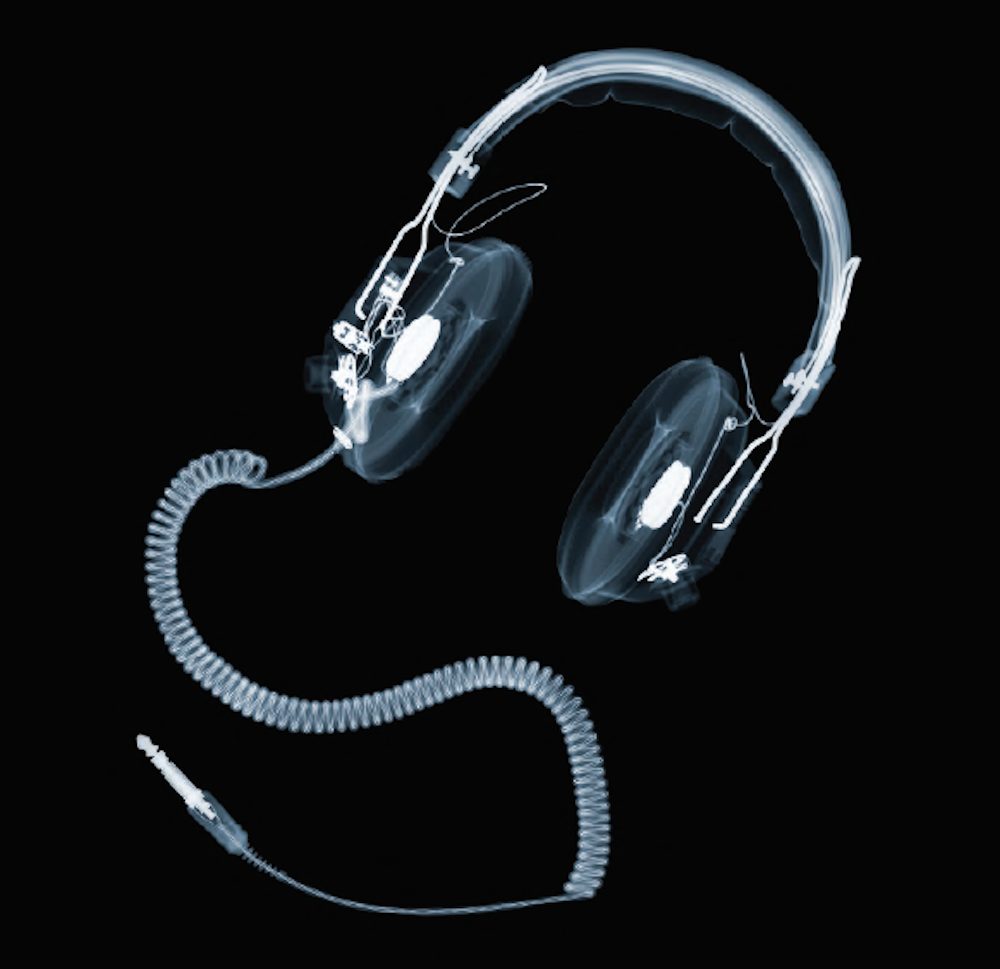
What's cool about this is it went from me being the only person who really saw a vision for this to now like 100,000 people who listen to it. And it's nice. But back then it was like, we'll slog through all these episodes and then hopefully it'll resonate. And it did. And it feels really nice to be on the other side.
It went from me being the only person who really saw a vision for this to now like 100,000 people who listen to it.
But now, if anything, that mission is even more crystallized. Because now there are more people involved and writers and sound editors and people we collaborate with. Everyone gets what we're doing now. And that's really hard when you start a podcast because no one really gets what you're doing until you can show it.
Doug
How many episodes deep were you when you realized, oh wow, we're getting a following?
Dallas
It was quick. And it was basically because I knew Roman Mars.
We've known each other for some years prior to 20,000 Hertz. I became a listener of 99% Invisible in probably his first 10 episodes. I think I found out about 99% Invisible probably from Radiolab. We dropped the first episode, maybe a couple hundred people downloaded it. Probably friends and family from Facebook. So that first episode was the voice of Siri. And then two weeks later, we dropped the NBC chimes episode.
By this point, I'd spent so much of my personal money and savings kind of to pay people and do that, because I never wanted anyone to kind of come along with my dream for free. So everyone was being paid. But I was at a podcast convention and I just happened to bump into Roman. And he was like, “Hey, I like what you're doing. Do you mind if I play what you just posted on our feed next week?”
And so the day we dropped our third episode was the day that he put it on 99% Invisible, and then from there it was just an immediate hockey stick in the download chart. And then that got the attention of NPR and Apple and some others. So from there, it was this very quick seeding. And it’s been little upticks along the way, depending on who we collaborate with. Or if somebody else features an episode, cross promotes, things like that.
Doug
That’s incredible how just one interaction changed the trajectory of the show.
Dallas
And I never pitched him or anything. I had known him for years before when I went out to San Francisco, probably around his 20th or 30th episode, something like that — so real early in the life of 99% Invisible. And I was out in San Francisco for a game conference. And I was like, ‘Hey, Roman, I love your show. I’d love to meet you.’ And some for some reason, he was like, “Sure.”

So we got together, hung out. And then from there, we were just Facebook friends for years. I don't think he's on there anymore. But we were just commenting on each other’s posts and just being friends. I never expected that I would ever need anything from him. And I never asked either. I just thought, you know, I hope you like what we're doing.
If Roman hadn't done that, we wouldn't have made it past episode ten.
When he did that he knew what he was doing, though. Because he was seeded by others. And he's been the one that's launched quite a few podcasts. And so I was just really fortunate. And since then, I think he's featured two of our episodes. We've written a couple of episodes for them. It's all Roman Mars. Like I said, If Roman hadn't done that, we wouldn't have made it past episode ten.
I try to remember that, too. It's just really important to help everyone because nowadays, when we have these enormous amounts of money pouring into podcasts, you know, I'm not seeing any of that money. And we're still doing everything the same way. But it's harder and harder because independent podcasting is a fine line of a place that we could lose very soon. And so we're just trying to make it work.
Doug
You mentioned it took you a year to produce your first two episodes. How long does it take to produce an episode nowadays?
Dallas
Our turnaround time is usually about three to six months from inception to posting. And we’ve calculated this before, most of our episodes are in the 200 to 250 hour range of human time to get through it, sometimes 300 hours if it's really intense.
For our show, in order to survive, we have to have multiple shows in production at once. I believe everything for this year is in production all the way through November at the moment. And so we just have to have massive lead times for the things that we're thinking about and the things we're working on.
Doug
How do you come up with ideas for the episodes?
Dallas
I’m very diligent about writing down every single idea that comes in. We use Trello for all of our project management. It's basically like a scrum board. And so it's all priority-based, so we use that at Defacto Sound, but we also use that for 20,000 Hertz. But we have this whole thing that's shows and ideas. And anytime I ever think of something, you know if I'm out at a restaurant, and I go, oh my goodness, this would be a great show, I'm very diligent about writing it down.
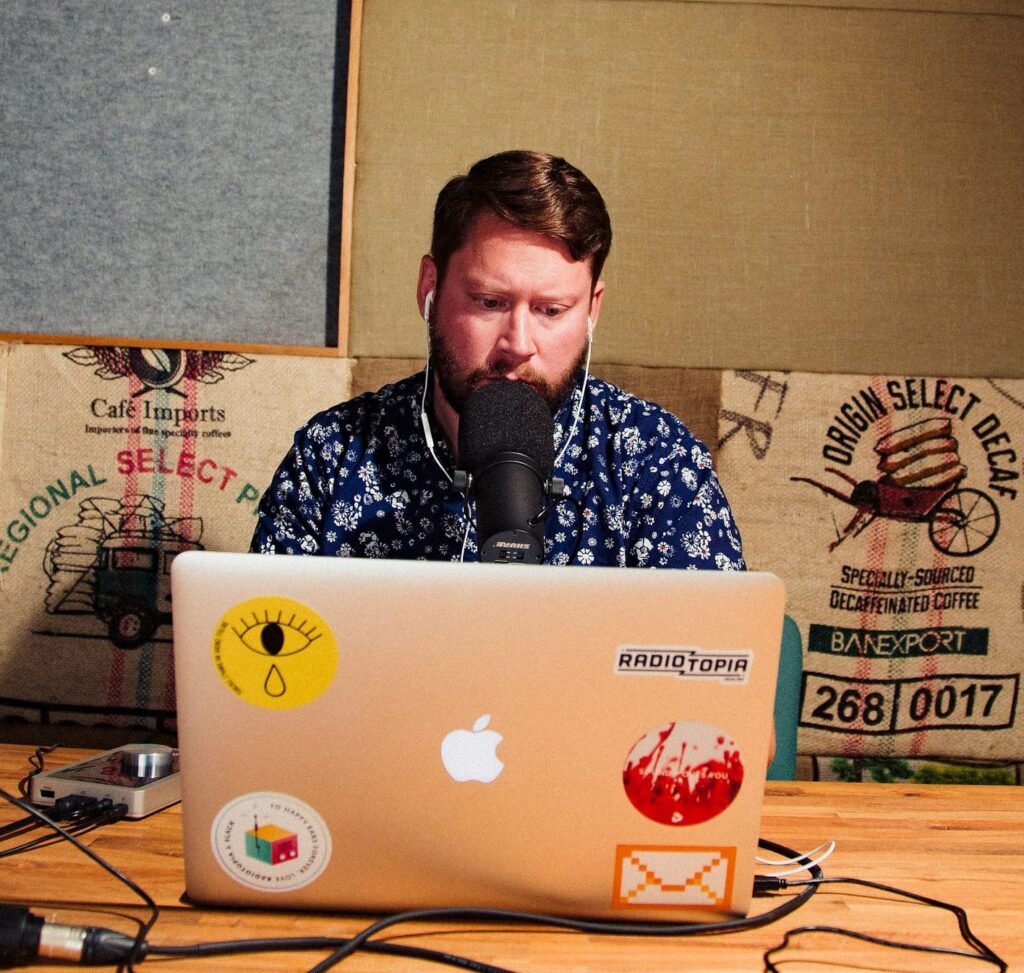
We encourage listeners to send in what they think we should cover. In addition to that, we get a lot of Twitter, Facebook, Reddit suggestions as well. The other two people who are kind of project managing and story producing, we're always writing down anything that comes in. So when we're actually evaluating episodes, we'll have a list of probably 400 or 500 ideas. Every month or two we parse out the ones we find the most interesting.
When we're actually evaluating episodes, we'll have a list of probably 400 or 500 ideas.
We're four years in, we have experience, we generally know what's going to work or I generally have a really good feeling about whether or not something's gonna work. We've had episodes that have been a slog, and hard. We want to enjoy the process. I even have a special list that’s an immediate greenlight. So any writer who wants to do an episode on that list, it’s automatically approved, they can just go for it.
It's tricky because a lot of podcasts, especially highly produced podcasts, really need to know all the story beats before they greenlight something. As far as I'm aware, This American Life, Radiolab, and maybe even 99% Invisible to a certain extent, need to be convinced there's a very huge, clear human story to get us from point A to point B. We don't have that burden.
There are times where we need that human story. But because our mission is about hearing, we can go, oh, the Windows 95 sound. What's up with that? Let's do a show about it. And so we can kind of just go with it. And nine times out of ten we find our way.
Because most of these highly produced shows come out of public radio — I'm a huge fan of the people making things who came out of public radio. However, the public radio ecosystem is its own echo chamber of the way things should be done. And we're coming in from this completely left field background of advertising, but a huge appreciation for what people are doing. I just try to not be so stuffy about it. Like, what sounds like fun? And then proceed down that route.
Doug
Knowing what you know now about podcasting, is there anything you wish you'd done differently in the first year of your show?
Dallas
I wish I wasn’t trying to be someone else. At the time, I was just like, I'm not good enough to be a host. So I'm gonna kind of pretend to be these other people.
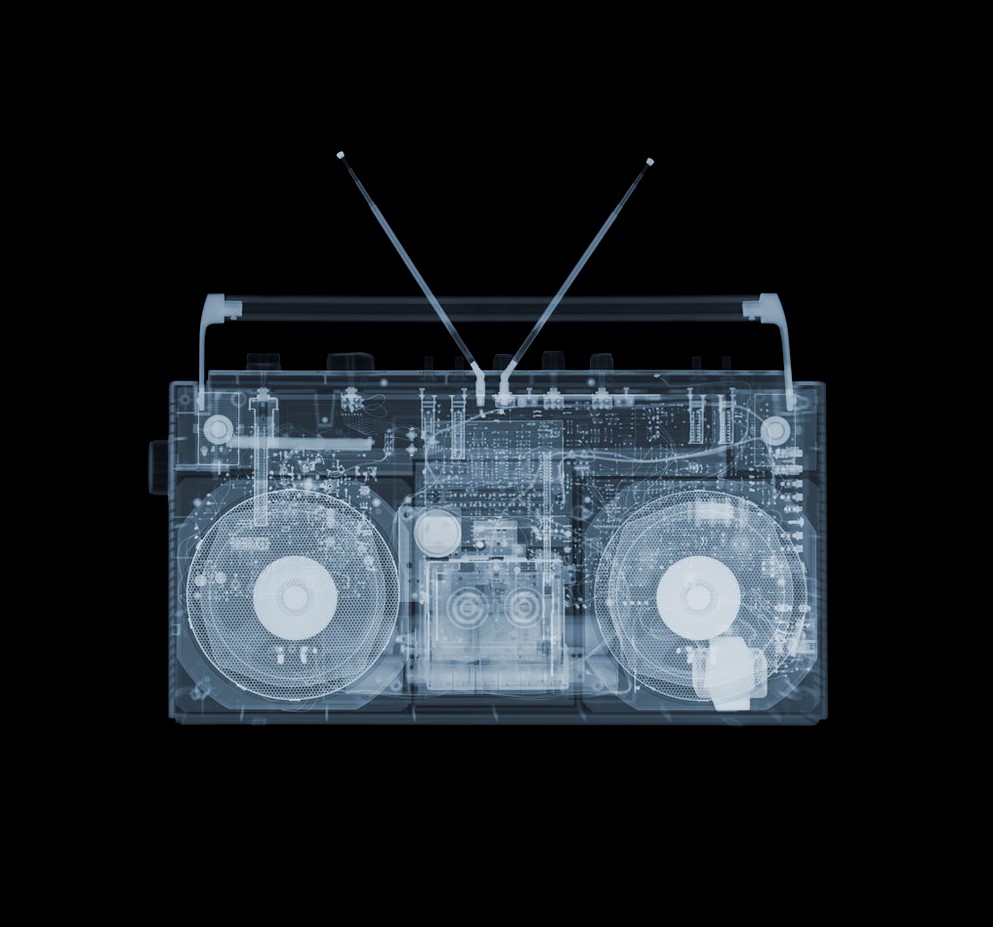
We've started to replace my narration on our first episodes, because my narration is so bad because I'm trying to be too cool. I come across as being sleepy. I think I was trying to have a hybrid of Roman Mars or Jad Abumrad or these people that are very cool. And the problem with that is I will never be those people.
The public radio ecosystem is its own echo chamber of the way things should be done.
It took me a long time to find who I was as a host and be okay with that. It's a lot of insecurity when you're hosting a show. There's so much insecurity in that, with hearing your own voice. And also knowing how much better other people are at it.
I wish I wouldn't have stressed so much about that and been like, it's okay to be who I am. It's okay to be earnest and it's okay to be excited. I don't have to be like, “I'm a super cool guy doing this cool guy thing.” It's fine to just be dorky when I want to be a dork. Because those people I was trying to be, they also at some point in their career have tried to be somebody else, too.
So I think that's the thing where I'm getting to now. It's like, who am I?
I love the process. I love the stories. But there's so much about podcasting that you have to think about, like audience growth and financials and advertising and all this stuff. The thing I want to do is just get straight down to making the best possible story. Sorry if I’m meandering.
Doug
No, that's fine. I think Daniel Pink said, “I don't know what I think until I write it down.” And I'm the same way because writing is my most natural way of communicating. With speaking like we’re doing now, I miss the safety blanket of editing.
Dallas
You know, fun fact, I have not written a single episode of 20,000 Hertz from the first word. I have ripped them to shreds and rewritten them. I’m a great editor, but I'm not a great starting writer. So I always hire out. And then usually, by the end, we've probably rewritten entire shows over and over, some more than others.
Nowadays, we have a lot of repeat writers who really get where we're going. So we try to stick with the writers who really get it. But you know, the first few years were just kind of like, I needed something that was someone else's vision, and then going, okay, here's how I make it mine.
That was usually ripping scripts apart, then getting it into audio, and then re-ripping that apart, and then starting all over. But nowadays, we're getting the script right much earlier than we used to. A lot of times we're just ripping it apart, throwing it into audio and trying to find our way. And then two days before we launch, we kind of figure it out, then it works.
Doug
For those looking to get deeper into sound design with their podcast, what resources and advice would you give them?
Dallas
Soundly is great. That's a system for finding sound effects. It's really cheap and effective. There’s a lot of gatekeeping that happens in that and even mental gatekeeping. But like I tell video editors or podcasters or my team or just anybody is you need zero permission to start using sound design.
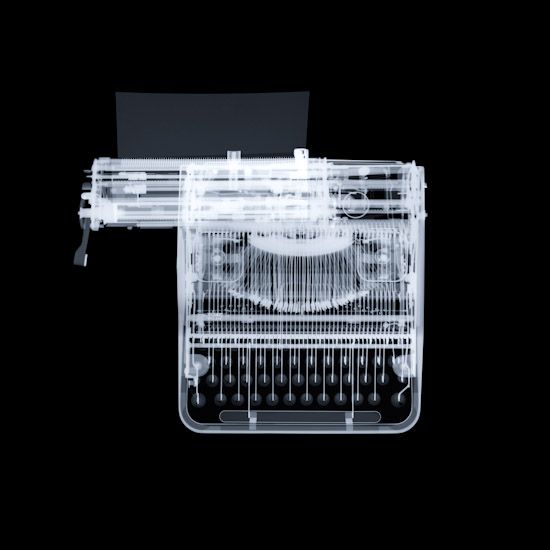
There's nothing about a sound designer or a sound engineer, that's any more brilliant. I would say there's more handicaps in the way that a sound designer or a sound editor thinks because they sometimes can’t see the forest from the trees.
Sound has to be written. That’s something we consistently find.
But sound has to be written. That's something that consistently we find. We can't just make a podcast and go, “Here, sound designer. Now you do all the sound design stuff.” Every time we have a successful moment in the show with sound design it’s because it was written into the script. Otherwise it just gets swept under the rug and then we have kind of wall-to-wall dialogue.
So the piece of advice is this: There is no permission that you need to start writing for sound design or doing it. There is no special secret club that only sound designers know how to do this. Some of the best sound designers right now just start messing around with it and then they do a great job. And the other piece of advice is to really do it well, it needs to be in the script. And it needs to be the vision to begin with, not something shoehorned later.
Doug
That's great advice. I think with younger producers, and I did this for a long time myself, we see production as a playground, and think, I'm going to go in my sandbox and I’ll figure it out along the way, planning and prep be damned. And then you wind up pouring 100 hours into an episode and there’s hardly anything to show for your time. The story just slips through your fingers. Because that planning you're talking about, that helps solidify the bigger vision.
Dallas
Yeah, and we have so many rules. I mean, that's the other thing, I like having boundaries. As far as the show, ideally, we want to be 22 minutes, give or take a minute or two. We want midroll right around 11 minutes, if we hit 12 we're starting to push a little long. But yeah, there's so many rules that we set up because we need rules as creatives in order to stretch as far as we can. I don’t like operating in a free-for-all. I even don't like the term “experimental podcasting” and stuff like that. For me, they seem so unfocused.
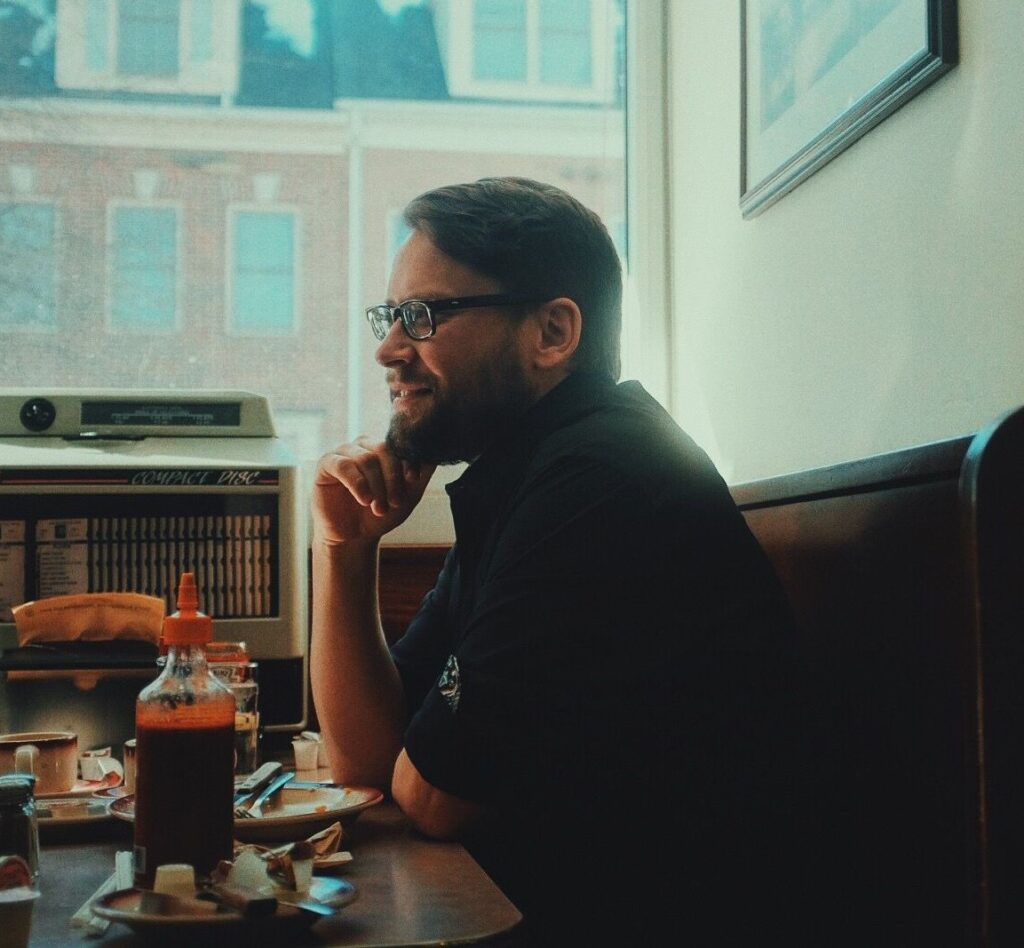
In podcasting, I think sound is like the cinematographer. You have to know what you're saying in order to use this thing to support the narrative. It can't be just like, we're just going to make really cool sounds and meander.
In podcasting, I think sound is like the cinematographer.
So we're very structured, we have outlines when we start shows. Now we do a lot more cold opens. If we think, oh this is a great story that they told but we can't figure that fit in the body, we put it at the beginning, as a little cold open. So now we know our structure, we're kind of messing with it. So we have a lot of rules. But those rules are what get us all on the same page. And then we stretch from there.
Doug
One last question: What are some of your favorite sounds?
Dallas
My kids. Their laughter, conversations. Because there's so much in the nuance of the way that we sing and perform our communication. Nothing is better than my kids and family in conversation and laughter. So the sound of the people that I love and who love me back.

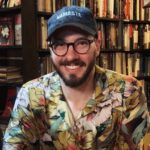
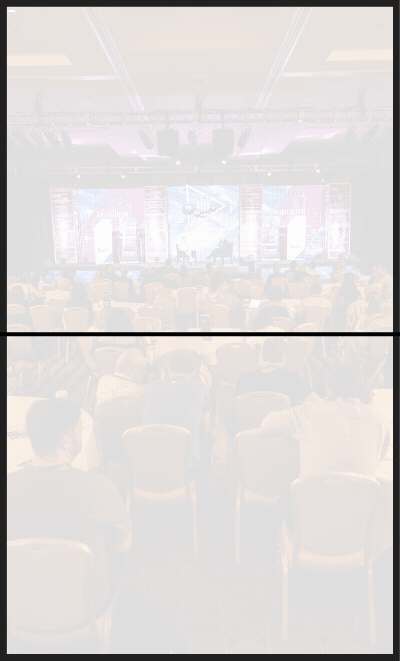


Join the Movement